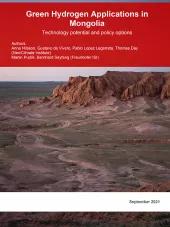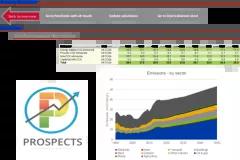NewClimate Institute together with GIZ provided support to the Mongolian NDC process between September 2018 and March 2020. This report provides a synthesis of the results of three years of supporting governmental and non-governmental constituencies with analytical support for the energy supply sector. At the core of the work were two strands. 1) Scenario analysis to support the understanding of the implication of the long term temperature goals of the Paris Agreement for the Mongolian electricity supply sector. 2) Analysis of socio-economic impacts of the energy transition, especially regarding health impacts associated to air pollution from coal power plants. The publication was also accompanied by a blogpost.
Scenario analysis: A non-binding long-term vision towards 2050 in line with the Paris Agreement
The Paris Agreement Scenario (PAS) range of our analysis aims to inform an alternative long-term vision for Mongolian electricity supply towards 2050, in line with Mongolia’s commitment to implement the Paris Agreement after its ratification in September 2016. The proposed vision builds upon (a range of) available literature on the decarbonisation of the electricity supply sector globally as well as in the particular case of Mongolia. A similar long-term analysis for Mongolian heating supply and the decoupling of electricity and heating supply remains outside the scope of this study. 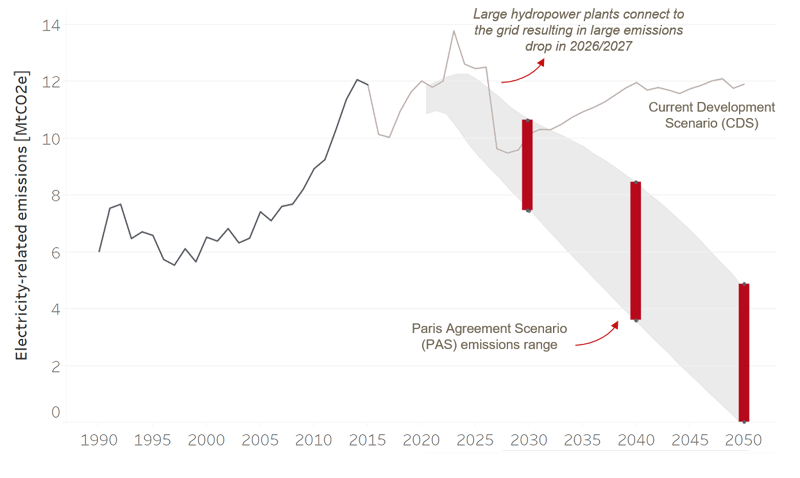
While an in-depth assessment of technological solutions is outside the scope of this report, our analysis identifies several actionable next steps in the medium-term to accelerate mitigation ambition in the future, for example the implementation of pilot projects for renewable-based heating in Ulaanbaatar and aimag centres to decouple heat and electricity supply or the improvement of grid operation capacities for integration of (variable) renewables. Mongolia will require continuous and reliable financial and technical support by the international community to successfully initiate and implement such concrete measures and to transition towards a fully decarbonised economy beyond its domestic capabilities.
Analysis of socio-economic impacts: Realising health benefits by phasing-out coal power plants over time
Analysing socio-economic impacts - such as public health or employment - of different future scenarios can help inform energy sector planning to incorporate wider sustainable development considerations. This report investigates health impacts associated with operating the existing (~1 GW) and newly proposed coal power plants (~7 GW, including Shivee Ovoo plant, with a capacity of 5.3 GW) in line with the latest expansion plans communicated by the Ministry of Energy as of January 2020. Coal-fired power plants accounted for roughly 6% of national air pollution in 2016, providing the third-largest source of particulate matter in Mongolia. 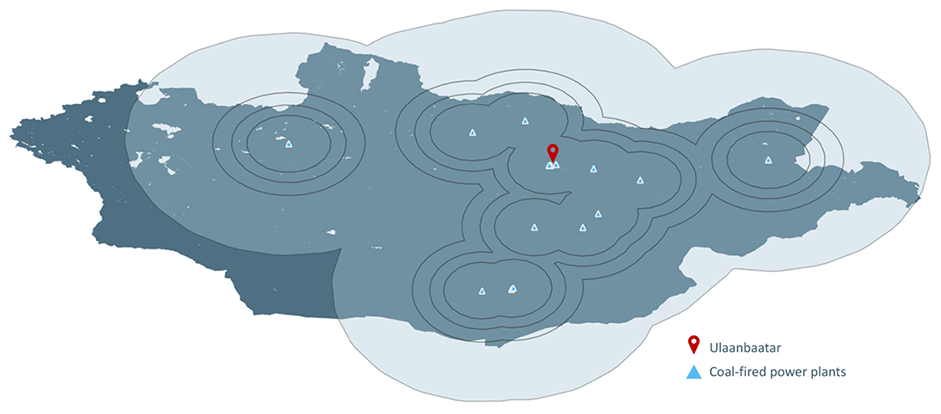 The report's analysis shows that the continued operation of coal-fired power plants could cause almost 1,600 premature deaths / 42,000 years of life lost in Mongolia between 2020 and 2050. Around 70% of these premature deaths and years of life lost will be caused by power plants not yet in operation but included in the coal capacity expansion plans of the Mongolian Ministry of Energy as of January 2020. The proposed Shivee Ovoo power plant alone would cause more premature deaths (640) and years of life (17,380) lost by 2050 than all other proposed new coal plants together (470 and 12,640 respectively). Shivee Ovoo’s pollution will directly affect the Mongolian population while exclusively producing electricity for use in neighbouring China.
The report's analysis shows that the continued operation of coal-fired power plants could cause almost 1,600 premature deaths / 42,000 years of life lost in Mongolia between 2020 and 2050. Around 70% of these premature deaths and years of life lost will be caused by power plants not yet in operation but included in the coal capacity expansion plans of the Mongolian Ministry of Energy as of January 2020. The proposed Shivee Ovoo power plant alone would cause more premature deaths (640) and years of life (17,380) lost by 2050 than all other proposed new coal plants together (470 and 12,640 respectively). Shivee Ovoo’s pollution will directly affect the Mongolian population while exclusively producing electricity for use in neighbouring China. 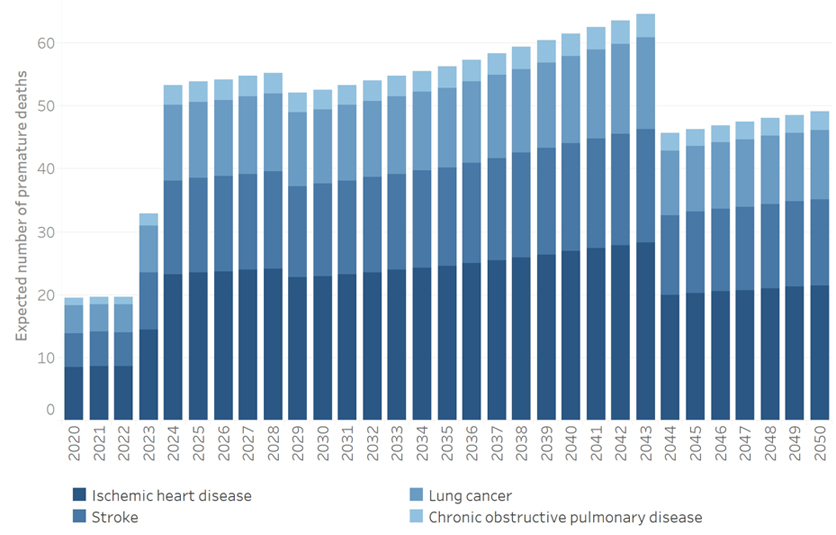 The potential negative impacts caused by existing and future coal power plants illustrate the importance of integrating considerations on health and other socio-economic impacts into Mongolia’s future energy sector planning. Further analyses can enable Mongolian policy makers to better understand the synergies between climate action and sustainable development; and integrate these insights into planning and decision-making processes.
The potential negative impacts caused by existing and future coal power plants illustrate the importance of integrating considerations on health and other socio-economic impacts into Mongolia’s future energy sector planning. Further analyses can enable Mongolian policy makers to better understand the synergies between climate action and sustainable development; and integrate these insights into planning and decision-making processes.



